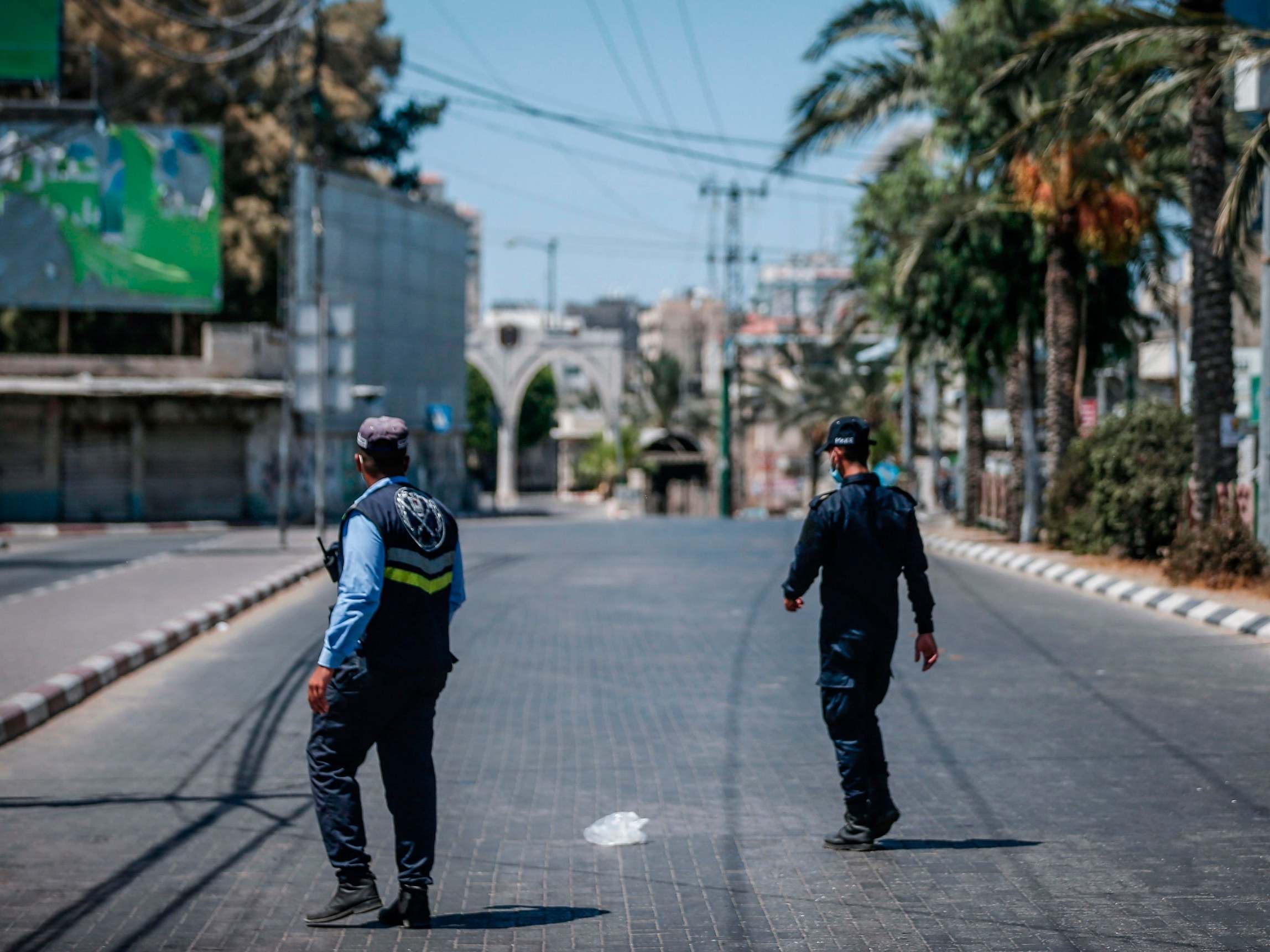Gaza reports first coronavirus outbreak amid WHO fears for health system battered by 13-year blockade
WHO official says Gaza can only cope with hundreds of Covid-19 cases at one time, amid medical supply shortages and crippling power cuts

Gaza has recorded its first coronavirus cases in the general population, igniting fears of what could be a devastating outbreak of the disease in the crowded and impoverished area.
Hamas, the militant group that runs the enclave, announced a 48-hour curfew late on Monday after the health ministry reported that four people from the same family had tested positive for the virus.
A full lockdown was imposed in Gaza while investigations were underway to track the original source.
Until this week, all the cases in the blockaded territory – home to 2 million people – were residents returning from abroad. They had been successfully contained within quarantine centres at the border.
The latest cases, uncovered after a woman tested positive when she travelled to the West Bank, mark the first time the disease has spread in Gaza through local transmission.
World Health Organisation (WHO) officials told The Independent it was a particularly worrying development because Gaza’s healthcare system, battered by a 13-year-long blockade as well as recent lengthy power cuts, could only cope with a few hundred cases at any one time.
Abdelnaser Soboh, the WHO’s Gaza director, said that nearly 50 per cent of Gaza’s essential drugs and medical supplies list was missing, including tubes needed for ventilating machines, oxygen masks and cancer medicines.
“We are still not ready to deal with thousands of cases, only hundreds,” he said, adding that Gaza needs additional coronavirus supplies like ventilators. Of the 100 ventilators currently available in Gaza, more than half are already being used.
“We are worried about a large scale spread of coronavirus and if there are cases needing advance medical intervention, because of the limited resources in Gaza.”
There have been 117 cases of Covid-19 registered in Gaza with just one death.
But the healthcare’s system has been ravaged by years of war and isolation meaning it is woefully ill-equipped to cope with the pandemic.
The authorities in Gaza had imposed strict restrictions to try to prevent community transmission.
Since March, Hamas ordered that anyone returning to Gaza via Israel or Egypt go into mandatory isolation for 21 days at a designated quarantine centre.
The new Covid-19 cases come amid a recent flare-up in cross-border clashes between militant groups in Gaza and the Israeli security forces, piling further pressure on the population.
In recent weeks Palestinian militants have launched incendiary balloons and rockets across border fences into Israeli territory. Israel has responded with airstrikes on targets linked to Hamas – though there have been no deaths or serious injuries on either side.
In retaliation for the projectiles being fired, Israel closed Gaza’s sole commercial crossing and its fishing zone. It has forced the territory’s only power plant to shut down for a lack of fuel, leaving most areas with only four hours of power a day.
“The electricity issue adds another burden to an already stretched health care system,” the Mr Soboh said.
“Hospitals are relying on generators for up to 16 hours a day but sometimes the power is not steady and so many of the machines are unable to operate in case they get damaged.”
Acquiring spare parts in Gaza for these machines is particularly tough because Israel bans many items entering, citing concerns they would have a “dual use” by militants.
The UN Palestinian refugee agency, Unrwa, called for unimpeded passage of all vital goods, including fuel for electricity, into Gaza on Tuesday, saying the closure of the main power plant was putting lives in danger. It added that Gaza had been hit by airstrikes for 10 nights in a row.
Israel and Egypt imposed a blockade on Gaza in 2007, after Hamas violently seized control of the area.
Join our commenting forum
Join thought-provoking conversations, follow other Independent readers and see their replies
Comments
Bookmark popover
Removed from bookmarks